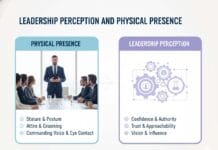Effective leadership is built on a foundation of strong communication. Whether you’re leading a small team or overseeing a large organisation, your ability to convey ideas clearly, listen actively, and inspire others plays a vital role in shaping success. Great leaders don’t just communicate—they engage, motivate, and empower people to reach their full potential. The way you speak and listen influences the entire dynamic of your team, helping you navigate challenges, build trust, and achieve long-term goals.
To master leadership, you must first master communication. This involves more than just relaying information—it requires emotional intelligence, clarity of thought, and the ability to connect with diverse audiences. By refining your communication techniques, you can create lasting impact, foster collaboration, and drive meaningful change. Let’s explore five essential techniques that can help you become a more effective leader and communicator.
The Power of Active Listening
Active listening is one of the most crucial, yet often overlooked, leadership skills. Many leaders believe their role is to speak and provide direction, but listening is just as important. When you truly listen to your team, you gain valuable insights into their perspectives, challenges, and motivations. This helps you make more informed decisions and shows your team that their opinions are valued.
To practice active listening, focus on the speaker without distractions. Nod, maintain eye contact, and use verbal affirmations to show you’re engaged. Reflect back what you’ve heard by summarising or paraphrasing to ensure understanding. When your team feels heard, they are more likely to trust you and collaborate more effectively, leading to better outcomes for everyone involved.
Clear and Concise Communication
Clarity is key when it comes to leadership communication. Ambiguity or excessive detail can lead to confusion and mistakes, slowing progress and frustrating your team. To be an effective communicator, always aim to convey your message in the simplest, most direct way possible. This doesn’t mean sacrificing nuance, but rather delivering the right amount of information in a digestible format.
Begin by organising your thoughts before speaking. Identify the key points you need to make, and the actions required. Use simple language and avoid jargon that could alienate or confuse your audience. When you communicate clearly, you eliminate misunderstandings and create an environment where everyone is on the same page and can move forward with confidence.
Engaging and Inspiring Presentations
Presentations are a vital part of leadership, whether you’re addressing a small team or presenting to stakeholders. However, delivering an engaging presentation requires more than just standing in front of a room and talking. It’s about connecting with your audience, keeping them engaged, and leaving a lasting impression. Strong presentation skills can help you motivate your team, gain buy-in for your ideas, and build credibility as a leader.
To improve your presentation skills, why not book a presentation training course to refine your abilities? Learning to structure your talks effectively, use visual aids, and engage your audience can make a significant difference. Being a confident presenter not only enhances your leadership credibility but also helps you communicate your vision in a way that inspires others to take action.
Building Emotional Intelligence
Leadership is about more than just managing tasks and driving results—it’s about understanding and supporting the people who help you achieve those results. Emotional intelligence (EQ) is the ability to recognise, understand, and manage your own emotions and the emotions of others. Leaders with high EQ are more effective at managing relationships, resolving conflicts, and fostering a positive team environment.
To develop emotional intelligence, start by becoming more self-aware. Reflect on how your emotions affect your behaviour and decision-making. Practice empathy by putting yourself in others’ shoes and considering their feelings before responding. When you lead with empathy and emotional intelligence, you create a work environment where people feel valued, respected, and motivated to perform their best.
Feedback: Giving and Receiving
Feedback is an essential tool for growth and development, both for you and your team. As a leader, providing constructive feedback helps your team improve and succeed. But equally important is your ability to receive feedback with an open mind. Leaders who are receptive to feedback are more likely to grow in their roles and foster a culture of continuous improvement within their teams.
When giving feedback, focus on being specific and actionable. Rather than offering vague critiques, highlight the exact behaviour that needs improvement and suggest ways to address it. Similarly, when receiving feedback, listen with an open mind and ask clarifying questions to ensure you understand the message. A culture of regular, honest feedback encourages personal and professional development, boosting overall team performance.
Wrapping Up
Mastering the art of leadership requires mastering the art of communication. From active listening and emotional intelligence to clear presentations and constructive feedback, your ability to engage, inspire, and connect with others shapes your success as a leader. By continuously refining your communication skills, you can build stronger relationships, foster trust, and lead your team to achieve lasting results. Leadership isn’t just about guiding others—it’s about creating an environment where everyone can thrive.





